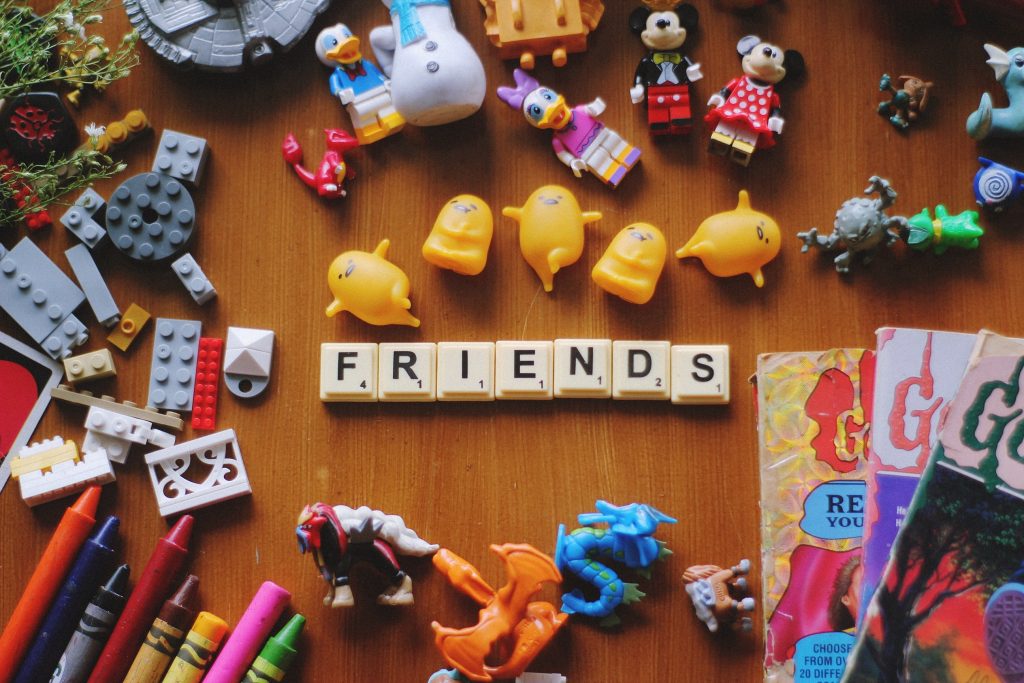Developing a close circle of friends
In this article we will talk about your close circle of friends – people you have – or could have – meaningful relationships with. So this could be any combination of people including your significant other, members of your family, your caretaker, your colleagues.. and others.
To prevent loneliness in yourself and others, when you have people in your close circle, sustaining those meaningful relationships is key…. and with every good intention in the world, we cannot sustain the same quality of relationships with everyone we know. So let’s look in more detail about how your circle is formed and the changes that take place.

Finding close friends to have in your circle
If you start off looking for a close friend, you are setting your expectations too high! However, if you set out with an attitude to have meaningful connections with all those you interact with –you can meet the person who might become your close friend. Close friends start as acquaintances, people in queues and on buses, people you meet at group events. Nearly all close friends had to start with meaningful conversation to develop into a meaningful relationship.
Its fair to say that some people that you may like very much will never form part of your circle of close friends. You might invite them in by doing all the right relationship building on your side, but they hold back for whatever reason. The reasons are wide ranging and often not about you as a person – more about their overall lifestyle, or what personal issues they are struggling with at this time of their life. As we see further down, sometimes people simply don’t have space for more close friends.
When you are developing friendships, having expectations of how quickly they should develop, or expectations of what activities you do together, or what chemistry you have, can limit how well you will connect. Combinations of any two people will be quite unique and so being more relaxed how the relationship unfolds will give you a greater chance of seeing a close friendship forming.
So sometimes our close friends might end up being people you least expected when you initially met.
Our ideal close circle has neither extremes – “the one and only” or “lots”
As romantic as it sounds, one friend (partner/soulmate) being “your everything” is rarely a reasonable expectation for any human to fulfil on a long-term basis. We may do well with only one friend in some situations, and for periods of time, but eventually one of you is likely to need more close people in their life… and one of you might feel considerable pressure to be “your one and only”.
So putting aside fear of something happening to this wonderful human being, depending only on one person, isn’t the healthiest for either of you. Adding in more close friends does not lessen what you mean to each other. We benefit from different perspectives, and being nurtured in different ways, as well as being able to give in different ways to others. So especially if either of you is experiencing that you are not meeting all of each other’s needs, consider ways of both of you increasing your close circles of friends.
On the other scale, trying to be a close friend to too many people is counterproductive, When you spread yourself too thin you are not able to give the best of yourself, and either you will burn out or your friends will feel short-changed. Both of these diminish the meaningfulness despite your very good intent.

We ordinarily need only a few (three to five) friends in our close circle
Surprising is that to prevent loneliness we ordinarily need only a few (three to five) friends in our close circle. We are likely to give different parts of our authentic self to these few friends, and we are likely to get fulfilled in different ways from each friend. We can genuinely love infinitely more people than only these few – but these few help us feel connected meaningfully on a regular basis, and part of a wider group. With this number you can reasonably keep track of the more important issues, and follow through with them how they are tracking. You are also able to remember the confidences – who told you what. You can value each and feel valued… and you can trust you will be available for each other in a crisis.
We are talking generally… people are unique – your levels of time and energy you have for others, as well as your circumstances. If you are in a live-in group of people where time is plenty and your main focus is developing friendships, you could very likely sustain a greater number; whereas those whose main focus is working full-time, with family commitments, may only have time for a few. The important aspect is whether both people (or all in a group) feel all the elements of a meaningful relationship are being fulfilled.
Our circle of close friends vary over our life time
Over your lifetime the friends with whom you have the most meaningful connections is likely to vary. While they are in your close circle, you feel the constancy of their support and you give to them the reciprocal attention too. But life happens; changing situations – yours and theirs – causes some relationships that were very meaningful to end or reduce substantially in the amount of contact. That is normal. Individual circumstances make keeping up the friendship in the same way difficult. Yet when you both have the same understanding that this isn’t about how each of you feel about each other, you find when you do come together again, you can pick up where you left off with no resentment.
In the same way as we you might gain friends in unexpected ways, so too can we lose their friendships in quite unexpected ways. Where people struggle is when one of the two friends disappears or gradually pulls away, with little explanation – perhaps only excuses for not accepting invitations, and no more initiating catch-ups. So when one of the friends expects the relationship to stay as close and as meaningful as before, and the reality is different, because the relationship is not the same, confusion arises. With the recognition that your friend is now missing from your life can bring around loneliness – with the accompanying pain, similar to grieving.

The value of friends beyond your close circle
Continuing to have other people in your life beyond these few in your close circle is still important. While you can reasonably expect to only know some aspects of the lives of about 20 people, regardless how much pleasure you get when you are in contact, some of these will rally around for you in a time of crisis, just as you will be there for some of them too. They are also the first people to consider when you are looking to develop some stronger relationships with, as your few close friends become one or two too few.
If you need support
While our whole focus is on doing what you can to prevent loneliness, if you are struggling with what steps to take to develop your meaningful relationships, perhaps having a counsellor would help. In that case, using our service might be just what you need!
